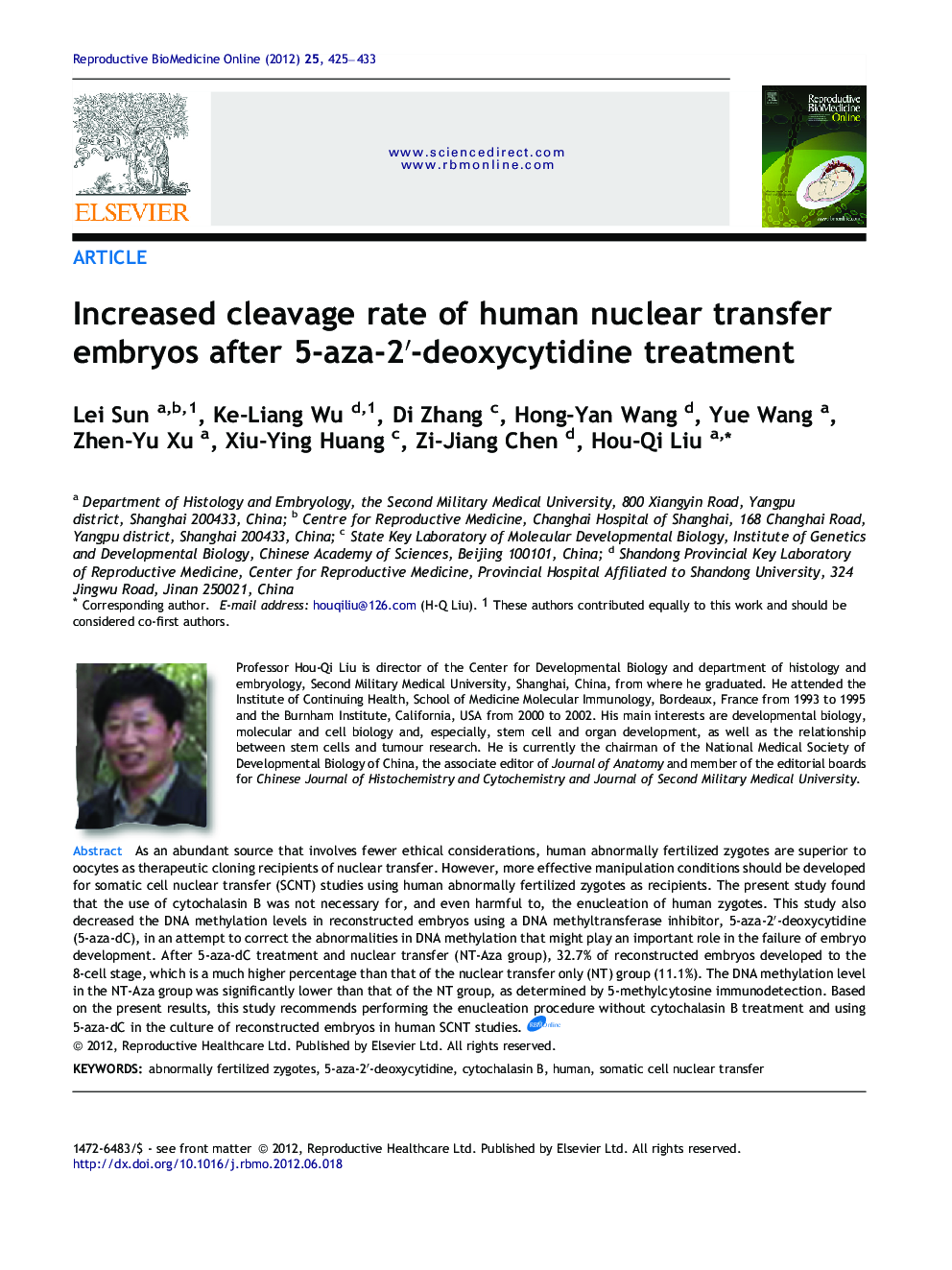| Article ID | Journal | Published Year | Pages | File Type |
|---|---|---|---|---|
| 3970545 | Reproductive BioMedicine Online | 2012 | 9 Pages |
As an abundant source that involves fewer ethical considerations, human abnormally fertilized zygotes are superior to oocytes as therapeutic cloning recipients of nuclear transfer. However, more effective manipulation conditions should be developed for somatic cell nuclear transfer (SCNT) studies using human abnormally fertilized zygotes as recipients. The present study found that the use of cytochalasin B was not necessary for, and even harmful to, the enucleation of human zygotes. This study also decreased the DNA methylation levels in reconstructed embryos using a DNA methyltransferase inhibitor, 5-aza-2′-deoxycytidine (5-aza-dC), in an attempt to correct the abnormalities in DNA methylation that might play an important role in the failure of embryo development. After 5-aza-dC treatment and nuclear transfer (NT-Aza group), 32.7% of reconstructed embryos developed to the 8-cell stage, which is a much higher percentage than that of the nuclear transfer only (NT) group (11.1%). The DNA methylation level in the NT-Aza group was significantly lower than that of the NT group, as determined by 5-methylcytosine immunodetection. Based on the present results, this study recommends performing the enucleation procedure without cytochalasin B treatment and using 5-aza-dC in the culture of reconstructed embryos in human SCNT studies.As an abundant source that involves fewer ethical considerations, human abnormally fertilized zygotes are superior to oocytes as therapeutic cloning recipients of nuclear transfer. However, more effective manipulation conditions should be developed for somatic cell nuclear transfer (SCNT) studies using human abnormally fertilized zygotes as recipients. In the present study, the effects of cytochalasin B (CB) treatment on the survival rate of the manipulated zygotes and the effects of 5-aza-2′-deoxycytidine (5-aza-dC) treatment on the cleavage rate of the reconstructed embryos were observed. Human polyspermic zygotes were enucleated in metaphase with or without CB treatment and injected with human cumulus cells. The reconstructed embryos were cultured in medium supplemented with or without 5-aza-dC for developmental potential comparison. The DNA methylation levels of the embryos were determined using 5-methylcytosine immunodetection. CB treatment lowered the survival rate of manipulated zygotes. After the 5-aza-dC treatment (NT-Aza group), 32.7% of the reconstructed embryos developed to the 8-cell stage, a much higher percentage than that of the nuclear transfer only (NT) group (11.1%). The DNA methylation level in the NT-Aza group was significantly lower than that in the NT group. Based on the present results, we recommend performing the enucleation procedure without CB treatment and using 5-aza-dC in the culture of reconstructed embryos in human SCNT studies.
